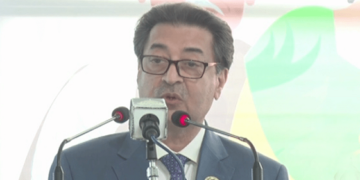Blockchain Provably Fair: Cryptographic Verification of Game Results
The concept of fairness in online gaming has long been a topic of debate. Players have often questioned the integrity of game results, citing suspicions of tampering or manipulation by casinos and other game operators. To address these concerns, blockchain technology has emerged as a reliable solution for ensuring https://gamdomcasinowinnz.com/ the provability of fair game outcomes.
What is Provably Fair?
Provably fair systems refer to online games that utilize cryptographic techniques to verify their fairness. In such games, all participants can see the exact sequence of random numbers used to generate the outcome, thus making it possible to determine whether the result was fair or not. This verification process provides players with assurance that the game has been played fairly and that the outcome is unbiased.
How Does Provably Fair Work?
A typical provably fair system involves a combination of hash functions, digital signatures, and publicly accessible data sources. The basic process can be broken down into several steps:
- Random Number Generation: A secure random number generator (RNG) produces a sequence of random numbers that are used to determine the game outcome.
- Hash Function Application: The RNG output is fed into a cryptographic hash function, which generates a unique digital fingerprint or "hash" for each game round.
- Digital Signature Generation: A publicly accessible key pair (private and public) is used to generate a digital signature based on the game’s state and the previous block in the blockchain.
- Blockchain Verification: The hash value generated during step 2 is linked to the blockchain, allowing anyone with access to verify the integrity of the outcome.
Advantages of Provably Fair Systems
Provably fair systems offer several benefits for both players and game operators:
- Transparency: All participants can view the entire sequence of random numbers used in a particular game round.
- Accountability: The use of public keys allows for the detection of any manipulation attempts by game operators or other parties involved.
- Trustworthy Outcome Verification: Players can trust that the outcome was determined independently, eliminating concerns about bias or manipulation.
- Increased Player Trust and Satisfaction: By providing assurance about fair play, game operators can enhance player satisfaction and reduce disputes.
Implementation of Provably Fair in Blockchain-Based Games
To implement provably fair systems in blockchain-based games, game developers must integrate the following components:
- Blockchain Platform Selection: Choose a suitable blockchain platform that supports smart contracts, such as Ethereum or Binance Smart Chain.
- Smart Contract Development: Design and deploy a smart contract that manages random number generation, hash function application, digital signature generation, and blockchain linking.
- Publicly Accessible Key Pair Management: Store the public key pair securely in a wallet or external storage to ensure its availability for verification purposes.
Real-World Examples of Provably Fair Blockchain Games
Several notable examples illustrate the effective implementation of provably fair systems in blockchain-based games:
- Bitstarz Casino : This online casino has implemented provably fair protocols for their slots and table games, providing players with a transparent view into the game’s outcome.
- Edgeless Casino : A decentralized casino that utilizes a provably fair protocol to ensure transparency and fairness in all game outcomes.
Conclusion
Blockchain technology offers a robust solution for ensuring the integrity of online gaming results through the implementation of provably fair systems. By utilizing cryptographic techniques, players can have confidence in the fairness of games, leading to increased trust and satisfaction in the gaming experience. As the adoption of blockchain-based games continues to grow, the importance of transparency and accountability will become increasingly essential, solidifying provably fair systems as a cornerstone of online gaming integrity.
style=”display:none;”>





















































